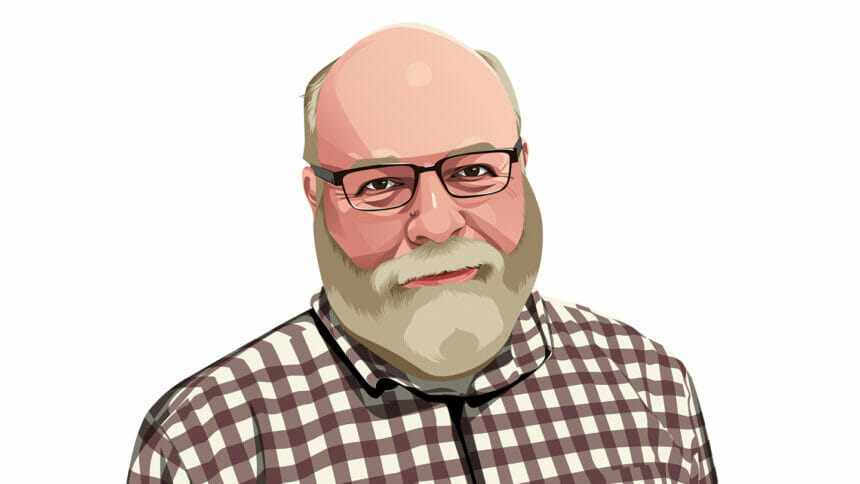
A cherished senior (otherwise known as my dad) was lying in a hospital bed having a horrible day/week/month/year when the recreation therapist showed up.
Her name was Tiffany, and along with her infectious energy and omnipresent smile, she’d brought a satchel of intriguing goodies. After introducing herself, she commenced to unpack her trove of puzzles and games, crossword books, watercolor paints and art paper, revealing them as though they were priceless treasures stolen from the tomb of King Tutankhamun.
Her mission was clear — to amuse, distract, engage, elevate her despondent patient by any means necessary. And under extremely difficult conditions, with the odds decidedly not in her favor, she tried her best.
When dad showed no interest in anything she’d brought, she asked him what he’d like to do instead. “Ride horses,” he said, with a wistful look.
“Well, unfortunately I wasn’t able to bring one of those with me,” she gamely responded. Then, undeterred, she launched into the same speech I’ve heard activity directors give so often and eloquently in long-term care settings.
“I’m so sorry you have to be here,” she began. “But maybe all this time on your hands is an opportunity to do something you haven’t before. To explore new interests, maybe try a new hobby.” Her manner was even more persuasive than her words, communicating beyond all doubt that she knew how difficult things were for him, and wanted so much to help get him through it.
It didn’t really work, at least not the way she intended. But I was amazed and impressed by how hard she tried. She simply wasn’t going to be dissuaded by his unwillingness, and eventually had him talking and laughing in spite of himself. Even though he never did take advantage of any activity she offered, she made his day special, which he told her sincerely, and said again once she’d gone.
I think about that a lot when I see long-term care activity directors in action. Like Tiffany, they’re masters at overcoming obstacles and getting residents involved with the sheer power of their positivity. Part of my admiration is probably rooted in knowing what it would take, were I in a similar situation to my dad’s, to get me to do anything but worry about the future and feel sorry for myself.
Many of our residents are lying in a bed, like he was. They’re staring out the window, like he was. The fact that they’re in a facility at all means life isn’t going according to plan, that something unwelcome, probably horribly unwelcome, has happened. They’re wrestling with the discouragement, like he was, of knowing they’re on a slippery slope to the great unknown. Who can blame them for feeling like it’s all futile? When they can’t do the things they used to love to do, what’s the point of even trying something else?
But then, that activity director walks in, flashing a huge smile and making great eye contact, energetic and engaging, never giving up, with an enthusiasm that overcomes all obstacles.
I’ve seen the transformation activity directors achieve. I remember talking to a woman who had been reluctantly goaded into participating in an art activity designed to unlock memories and help seniors express what they’ve done and who they are. It changed her whole attitude, and she became an ardent evangelist for the program.
I’ve watched a tight-lipped World War II veteran be persuaded to create a collage on canvas of photos and text that revealed more about his repressed experiences than anything he’d ever said in the 75 years since he served.
And I saw my dad’s defenses crumble when Tiffany worked her magic.
Like gravity and Taylor Swift, great activity directors are unstoppable forces of nature that defy all opposition. When I find myself in that facility bed someday, I, too, will be powerless to resist, though I’ll probably try, heredity being what it is. I might even ask for a horse.
Things I Think is written by Gary Tetz, a two-time national Silver Medalist and three-time regional Gold and Silver Medal winner in the Association of Business Press Editors (ASBPE) awards program, as well as an Award of Excellence honoree in the APEX Awards. He’s been amusing, inspiring, informing and sometimes befuddling long-term care readers worldwide since the end of a previous century. He is a writer and video producer for Consonus Healthcare Services in Portland, OR.
The opinions expressed in McKnight’s Long-Term Care News guest submissions are the author’s and are not necessarily those of McKnight’s Long-Term Care News or its editors.
Have a column idea? See our submission guidelines here.





